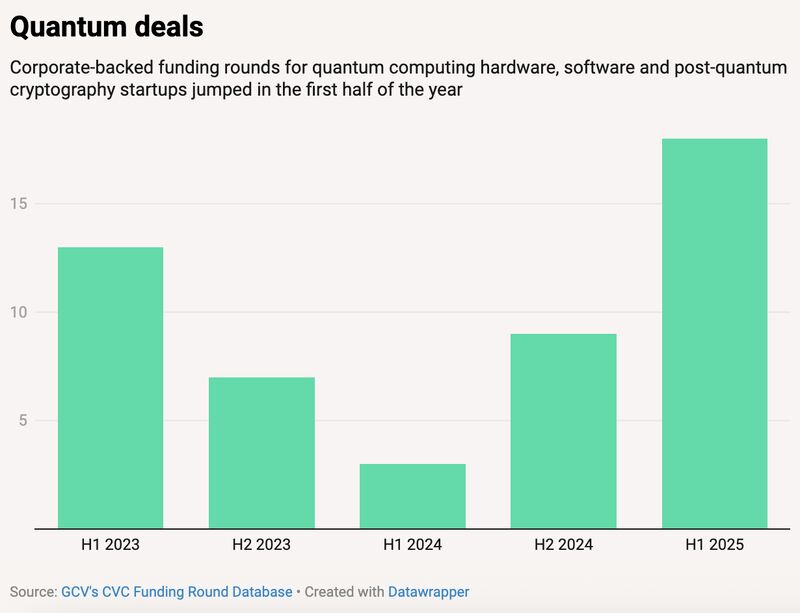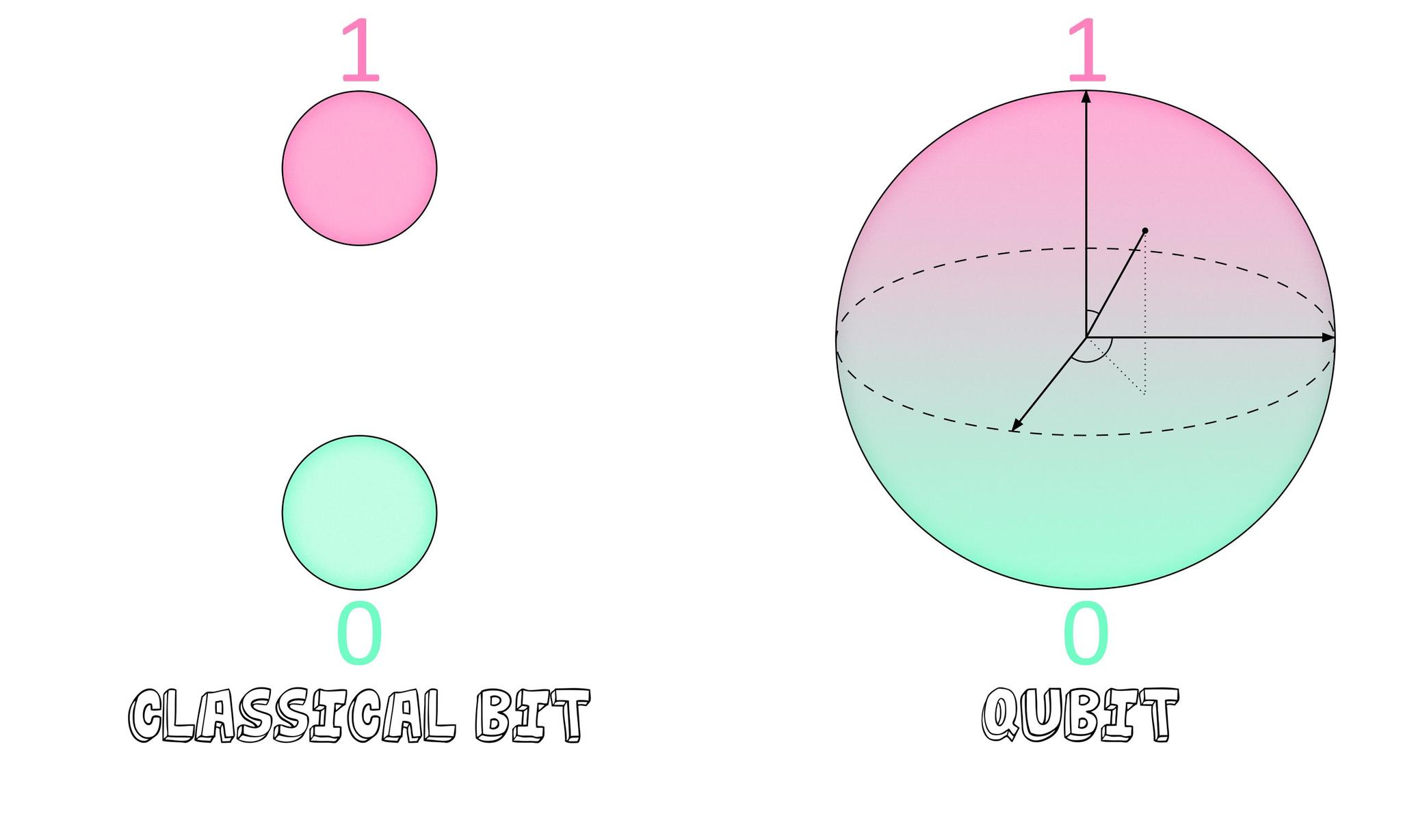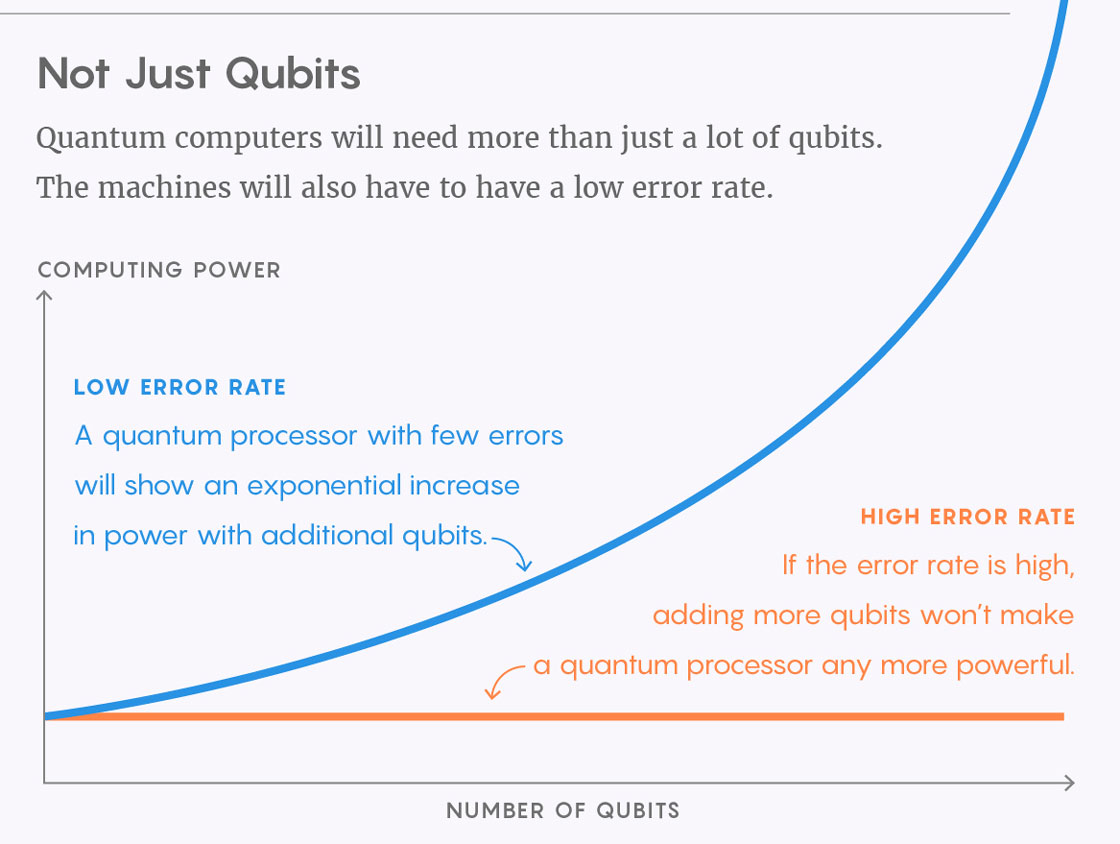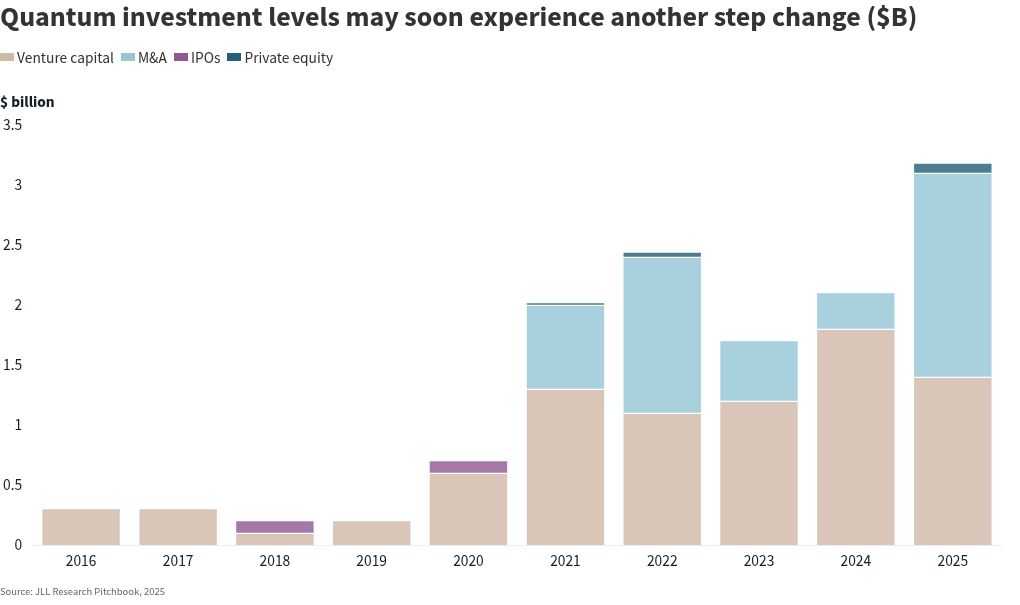Quantum Computing - The "ChatGPT Moment" Has Arrived
Quantum Computing - The "ChatGPT Moment" Has Arrived
By: Peter Frerichs
Sept 9, 2025
The nuts and bolts of quantum computing are nebulous at best. Historically relegated to university researchers and obscure think tanks, quantum computing emerged when the fields of computer science and quantum mechanics converged.
For everyday folks, quantum computing remains a mystery, but the shroud of secrecy is beginning to unfold. Corporate-backed funding rounds are popping, and quantum computing is finally embracing its long-awaited “ChatGPT moment.”

Quantum Computing’s Promise
Quantum computing’s promise is to one day solve highly complex problems very quickly. Classical computing is humanity’s day-to-day workhorse, uses bits valued at 0 or 1, and yields deterministic results. Quantum computing uses “qubits,” which can exist in a combination of 0 and 1 simultaneously. These combinations and quantum computing’s orientation toward probabilistic outcomes churn out infinitely more calculations than classical systems.

For example, if a classical processor is designed to perform 10 calculations, then the same quantum processor will perform 1,024 calculations - 2^10. Quantum computing can explore multiple solutions simultaneously and is well-suited for handling complex datasets and large-scale simulations.
Quantum computing’s potential is extraordinary - so what’s the holdup?
For one, qubits are highly prone to errors. They tend to exchange information with their immediate environment, are unstable by nature, and the more qubits a system uses, the more errors it will encounter. Four years ago, the consulting firm McKinsey & Company began to follow and report on quantum technology more diligently. For McKinsey, 2025 marks the first shift from quantum computing development to deployment, and the main reason is error correction.[1]
Mitigating Errors
In February, Google announced something that sounded like a farcical headline from The Onion. Willow, Google’s state-of-the-art quantum computing chip, performed a standard computation in under 5 minutes. The same computation would take one of the world’s fastest supercomputers 10 septillion years, a figure that surpasses the age of the Universe.[2]
That’s fast, and at the heart of this tremendous achievement was error-correction.

Mitigating errors in quantum computing has always been the proverbial elephant in the room. Yet, we’re currently living through some exceptional error-correction breakthroughs that could propel quantum computing into full deployment mode over the coming years.
- Alice & Bob, a French startup that raised $104M in Series B funding earlier in the year, demonstrated a 160x improvement in bit-flip error rates in March.[3]
- Riverlane, a global leader in quantum error correction technology, announced the development of a Collision Clustering (CC) decoder in May that corrects errors in quantum systems with minimal power consumption.[4]
- Atom Computing, in collaboration with Microsoft, made headlines in June with the development of error-correction codes that demonstrated a 1,000-fold reduction in error rates.[5]
Private and corporate investors have taken notice, but governments aren’t far behind. Over Q1 2025, the Japanese government plowed a monstrous $7.4 billion into the sector, accounting for approximately 75% of global public investments in quantum technology so far this year.[6]
Infrastructure Build-Out
Like AI, quantum computing needs to be housed. PsiQuantum, a Series E company and developer of photon-based universal quantum computers, is currently valued at $6 billion.[7] Last July, PsiQuantum announced it would be building a 300,000-square-foot Quantum Computer Operations Center on a vacant industrial site adjacent to the mouth of the Calumet River in Chicago.[8]

For decades, quantum computers have resided primarily in academic and government facilities, largely due to their limited real-world applications. The same “gold rush” that followed the massive AI data center build-out is now gaining momentum with quantum computing. PsiQuantum has raised $1.32 billion over seven rounds,[9] and industry-wide forecasts suggest $20 billion in investments in quantum computing by 2030 and $100 billion in revenue by 2035.[10]

Source: Batson, Andrew, and Thorpe, Daniel. 2025. “The Future of Quantum Real Estate.” JLL.
Quantum computing requires researchers and academicians. As such, infrastructure construction will be concentrated near major universities and research centers in cities/regions like Boston, Chicago, New Haven, Southern California, parts of Colorado, and Maryland.[11]
Sectors Poised to Win With Quantum Computing
There are several sectors poised to win with the next iterations of quantum computing:[12]
Healthcare
- Analyzing genomic datasets and personalizing treatment plans according to an individual’s biological characteristics is on the horizon with quantum computing.
Materials Science
- Quantum computing has already shown an ability to aid researchers in developing more efficient solar panels, batteries, and materials that are both lighter and stronger.
Supply Chains & Logistics
- One area that really excites quantum computing researchers surrounds weather and the promise to simulate complex atmospheric phenomena. Greater accuracy equates to more efficient movement of goods across global supply chains.
Agriculture
- Like precise weather forecasting to augment supply chain efficiency, the same is being heralded for the agriculture industry, leading to optimized crop production and improved disease prevention.
Drug Discovery
- Quantum computing has the potential to model chemical interactions at the molecular level, which would greatly facilitate pre-production drug testing.
Quantum technology patents jumped 13% from 2023 to 2024, with IBM leading the way with 191, followed by Google with 168. The U.S. (27%) and Japan (14%) lead in the share of global patents, with Germany, China, and France rounding out the top 5.[13]
Concluding Thoughts
The last year has been monumental for quantum computing. Market signals point to a shift from “future potential” to “near-term” deployment. This presents a first-mover advantage not only for companies researching and developing computing technology, but also for companies that stand to benefit from its deployment within their industries.
Sources:
[1] Soller, Henning. June 23, 2025. “The Year of Quantum: From concept to reality in 2025.” McKinsey & Company.
[2] Neven, Hartmut. December 9, 2024. “Meet Willow, our state-of-the-art quantum chip.” Google.
[3] Swayne, Matt. March 11, 2025. “Alice & Bob Improves Quantum Error Correction By ‘Squeezing’ Cat Qubits.” Quantum Insider.
[4] Swayne, Matt. May 9, 2025. “Riverland Reports Decoder Tech Sets New Standard in Quantum Error Correction.” Quantum Insider.
[5] Svore, Krysta. June 19, 2025. “Microsoft advances quantum error correction with a family of novel four-dimensional codes.” Microsoft.
[6] Soller, Henning. June 23, 2025. “The Year of Quantum: From concept to reality in 2025.” McKinsey & Company.
[7] Tracxn. September 6, 2025. “PsiQuantum - Company Profile.
[8] UChicago News. July 25, 2024. “Startup to build massive quantum campus on Chicago’s South Side.”
[9] Tracxn. September 6, 2025. “PsiQuantum - Company Profile.
[10] Batson, Andrew, and Thorpe, Daniel. 2025. “The Future of Quantum Real Estate.” JLL.
[11] Olick, Diana. August 12, 2025. “Quantum computing could be commercial real estate’s next big tailwind.” CNBC.
[12] Batson, Andrew, and Thorpe, Daniel. 2025. “The Future of Quantum Real Estate.” JLL.
[13] Soller, Henning. June 23, 2025. “The Year of Quantum: From concept to reality in 2025.” McKinsey & Company.
